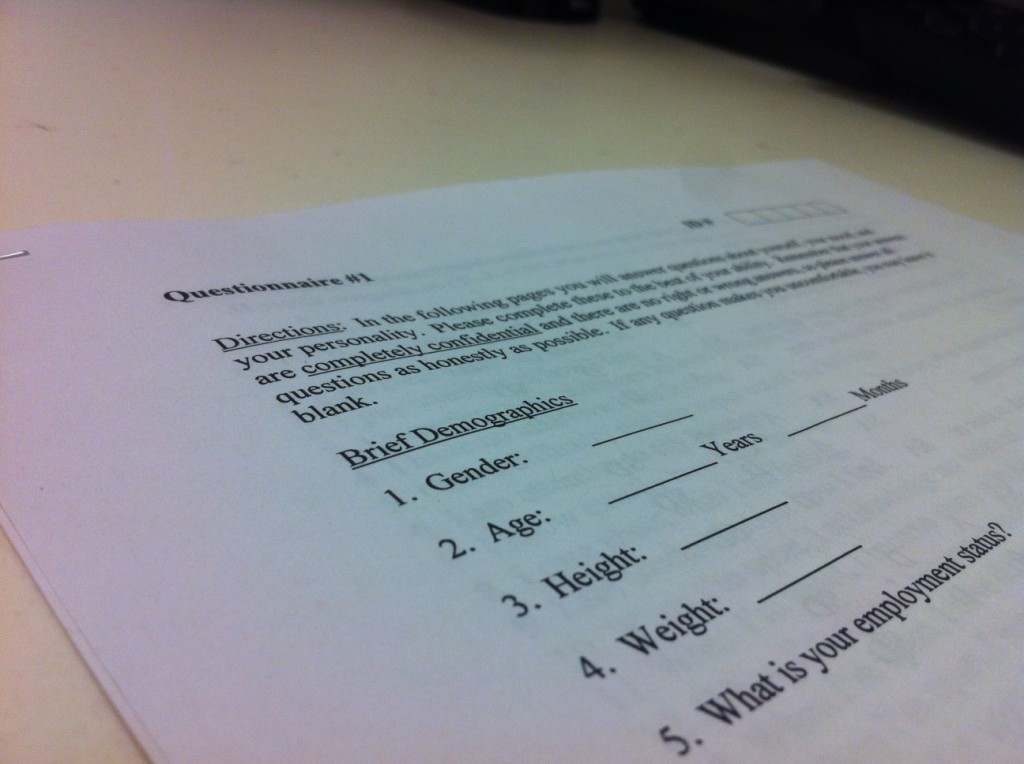Undertaking a long, multi-step project or process often involves unforeseen difficulties. While these challenges can be similarly frustrating to experience, combating them often necessitates a very different set of skills. Some problems require patience, while others require rapid ingenuity; other problems are best viewed through a creative lens, while some should be addressed as methodically as possible.
However, solving problems effectively can often default to a simple formula: one tries various solutions, fails, and subsequently bases future attempted solutions off of previous failures.
In the context of my research project, the largest challenge that I have had to deal with is recruitment. Participation in my study is limited exclusively to students at UPS, and since a large percentage of students go home during the summer months, I have a small potential sample size to draw from. However, there are still more than enough students for me to reach my minimum goal of 40 participants, as well as my ideal (and wildly optimistic) goal of a sample size of 80 participants. Despite the fact that I am offering $5 as compensation for participation, it has been difficult to find a steady flow of participants.
I initially thought that it would be sufficient to advertise solely via flyers placed around campus that advertised my study. Theoretically, the allure of getting $5 for 30 minutes of participation would be too much for some students to resist, and I would be overwhelmed by potential participants clamoring to get a piece of the action. In reality, the experience thus far had been vastly different. I’d be lying if I were to say it wasn’t a little bit of a letdown when, after putting up my flyers, I received little to no interest in the first week.
However, I also knew that in order to optimize the number of potential participants, I needed to undertake a more active, personable, and tangible recruiting process. The frenetic pace of daily life makes it difficult for a student to pay attention to every poster or flyer that they see, much less consciously decide to consider the information that it displays. By deciding to go around to summer classes and actively present about my research to students, I knew I had a much better chance of engaging them.
If I were going from classroom to classroom, handing out surveys, and simply asking students to fill them out, I would have no problem; people are not inherently opposed to participating in research studies, nor are they inclined to not want $5! However, participation in my study is different – it requires conscious effort – potential participants have to clear space in their schedule, contact me to set up a time, and show up and participate. That’s a significant amount of work, with a relatively small incentive; I can completely understand how other concerns and interests can make prioritizing research participation an afterthought.
Despite these initial setbacks, I am determined to continue working to get as many participants as I can. While it can be difficult at times, every single person that I get counts, and I frequently have to remind myself that, quite literally, “they all add up”. Hopefully the coming weeks will see steady, progressive participation as I look to reach my goal of 40 participants!

